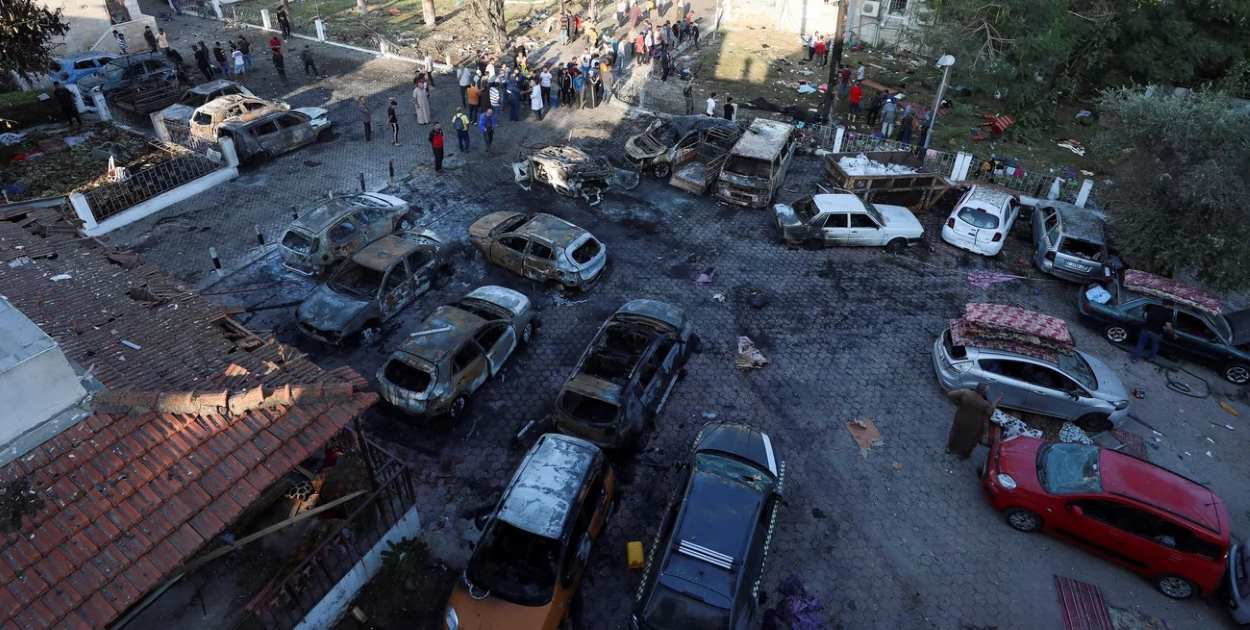The situation in Gaza has intensified significantly, with reports of Israeli airstrikes and “intense ground battles” taking place, particularly in refugee camps in central areas. These conflicts have tragically resulted in numerous casualties, including many fatalities.
One of the most devastating impacts of these strikes was the damage inflicted on Al-Amal hospital in Khan Younis, where a five-day-old baby was among the five killed. The hospital, clearly marked with the logo of the Palestinian Red Crescent, was housing an estimated 14,000 people seeking shelter at the time of the attack.
The assault on the medical facility has drawn strong condemnation from international figures, including Gemma Connell of the UN’s OCHA and WHO chief Tedros Adhanom Ghebreyesus. The latter described the bombardment as “unconscionable,” emphasizing the already fragile state of Gaza’s health system.
Calls for Ceasefire and Protection of Healthcare
International humanitarian law dictates that medical facilities like Al-Amal Hospital should be protected spaces, yet it suffered two shellings. Dr. Ayadil Saparbekov, WHO Team Lead for Health Emergencies, spoke from the damaged facility, reiterating the need for a ceasefire and protecting healthcare workers and facilities.
Meanwhile, the latest report from the UN’s OCHA described heavy Israeli bombardment across most of Gaza, along with Palestinian armed forces’ continued rocket fire into Israel. Ground clashes in Khan Younis and heavy strikes in Gaza City were also reported.
In a somber statistic, the Gaza health authority noted that from January 1 to 2, 207 Palestinians were killed, and another 338 injured. Since the start of the conflict in October, at least 22,185 Palestinian fatalities have been recorded in Gaza, with a significant portion being women and children. The Israeli military reported 171 soldiers killed and 983 injured since the start of their ground operation in Gaza.






